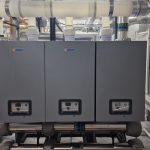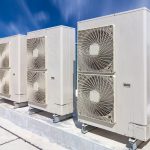5 factors to consider when choosing a new commercial boiler
Finding the right commercial boiler for your premises can be tricky, as there are a variety of factors to consider. From energy efficiency to size and capacity, it’s important to take the necessary time to research all available options and determine which one works best for your needs.
Capacity and Performance.
When considering a commercial boiler for your business, one vital factor to consider is its capacity and performance. Capacity is measured in either BTU/h or kilowatts (kW). Make sure the boiler you choose is capable of meeting the needs of your facility, as too low of a capacity can lead to insufficient heat production, while too high can result in an unnecessarily costly outlay. Additionally, look at the product’s efficiency rating to ensure you are getting the most out of your investment.
Fuel Sources available.
Be sure to consider the fuel source available for the boiler you are considering. Different fuels burn differently, and some may be more cost-effective than others depending upon where you live. Options include natural gas, heating oil, biomass, electricity and solar energy. Additionally, some boilers may require certain kinds of fuels in order to operate properly. Make sure to research the exact fuel requirements before selecting a boiler.
Size of boiler needed to adequately heat your space.
Before choosing a boiler, you need to consider the size of your space and determine the amount of heat needed to adequately heat it. Too small or too large boilers can end up costing you more money in energy bills, so it’s important to select the correct size for your needs. Measure the square footage of your space and calculate how much heat is required to keep it at a comfortable temperature. This will help guide you in choosing an appropriately sized boiler.
Ease of installation and operation/maintenance needs.
Buying a boiler is more than just finding one that is large enough to fit your needs – you need to make sure that you can install and operate the system confidently and safely. Also consider other factors of the installation such as access. For example it may be better to buy three or four smaller boilers that fit through the plant room door than one huge one that needs a strip and rebuild to get it in. This will not only save you on installation costs but will provide you backup.
Look for boilers with straightforward operating instructions, as well as an adjustable temperature control. Simple systems are sometimes more reliable and easier to maintain, so consider investing in a boiler with a simple design. Additionally, research how often the boiler will require maintenance and how much it may cost for regular servicing of the unit.
Initial cost vs life-cycle costs associated with the product over time.
When choosing a boiler, you should consider both the initial cost and the life-cycle costs associated with running it over time. It may be tempting to choose the most affordable option available, but it’s important to factor in how much energy the boiler will use and which type of fuel is compatible with your boiler. Investing in a system with energy-efficient features can help save on energy bills in the long run, so look for boilers that offer features such as optimisation and weather compensation. Additionally, check for warranties or guarantees on certain major components such as the heat exchanger to ensure that you get the best return on investment when making a purchase.






